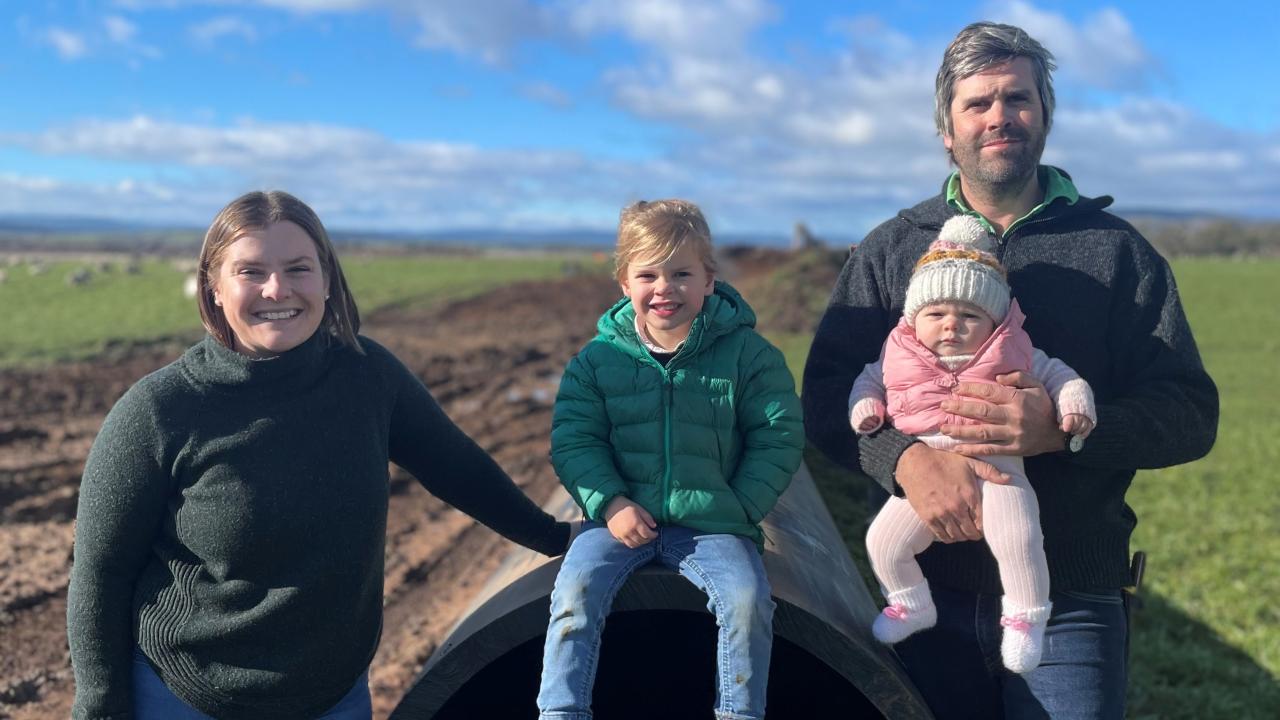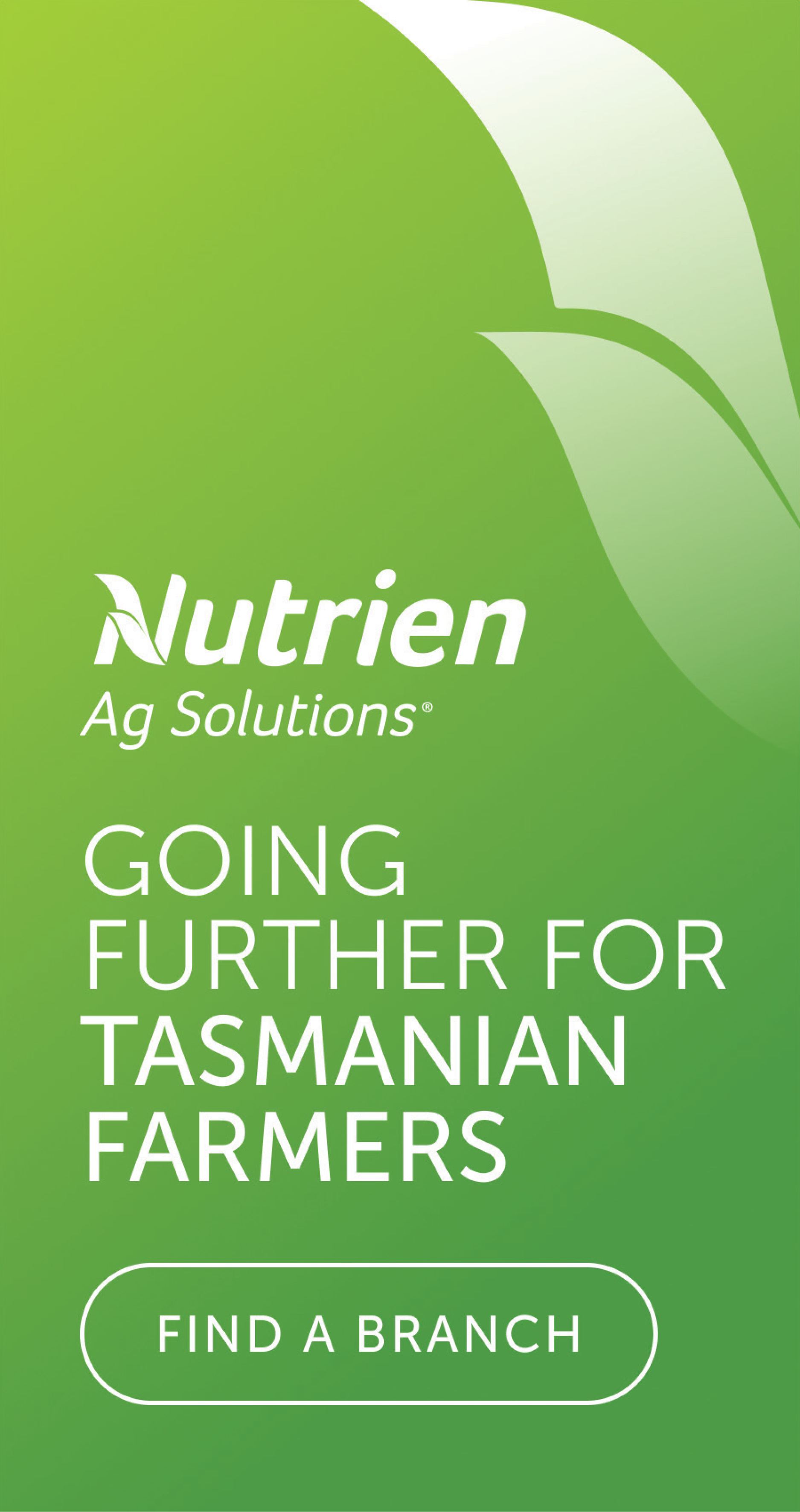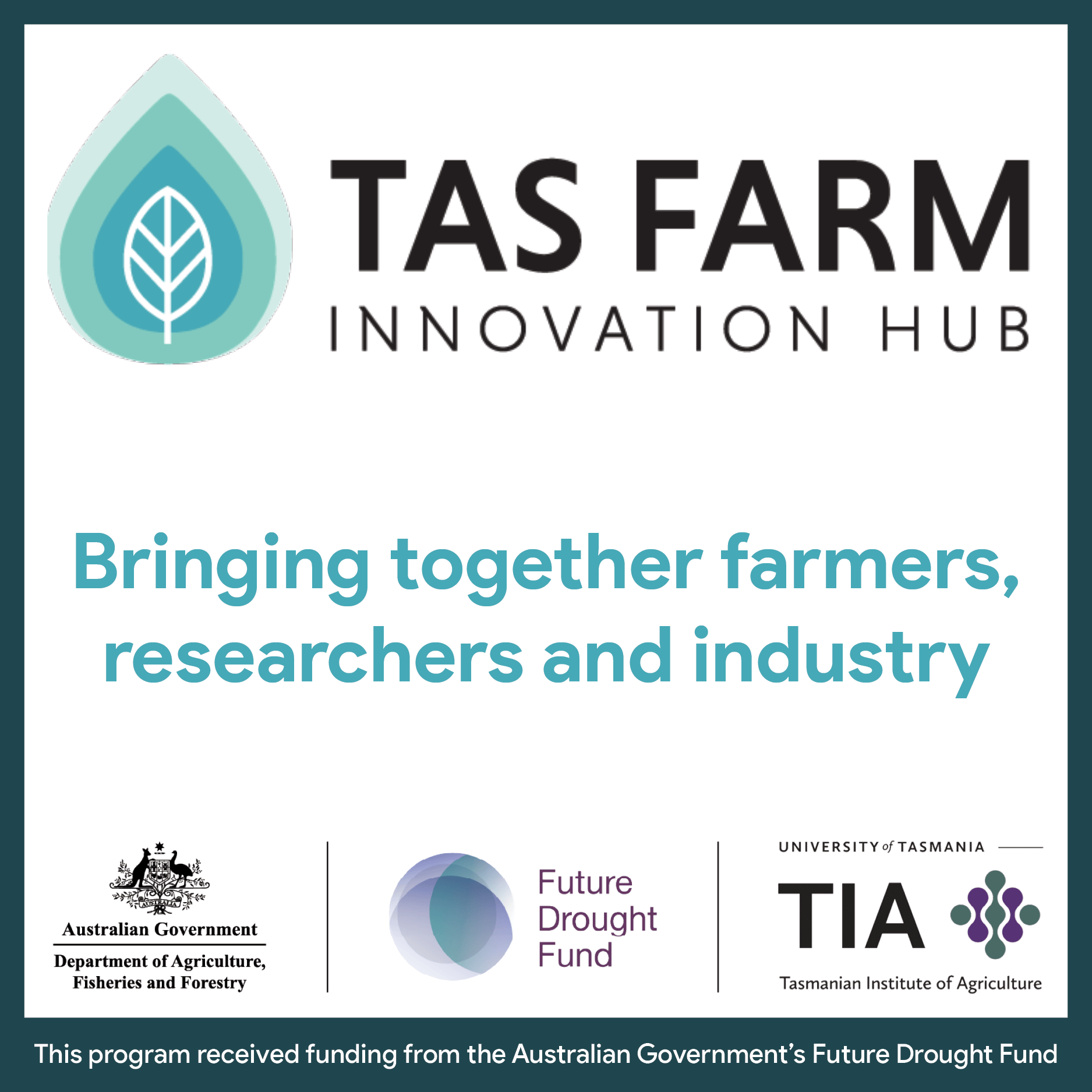Water wait is nearly over as pipeline reaches halfway point

Access to the Northern Midlands Irrigation Scheme will be akin to buying another farm, according to Campbell Town farmers Patrick and Mady Taylor.
A relatively small mixed farm of 650 hectares, “Greenhill” currently has about 200ha under pivot irrigation from the Macquarie River – an easterly and unreliable catchment that limits the farm’s diversity.
Lake Leake is empty so there will be no overflow this year and the limited on-farm storage is only enough to get by on in a pinch.
The Taylor family has been farming in the valley for more than 200 years and the reliance on water has only grown over time.
Cropping is their core business, and they run sheep and cattle, but the past two dry years has highlighted more than ever before how much they rely on a consistent water supply.
Next year Patrick and Mady will be able to buy enough water to irrigate 350ha with the addition of four new centre pivots.
Not only will they feel confident to grow more high-value crops, but they will also be able to grow out their lambs and take advantage of the booming fat lamb market and finish more cattle.
“That’s our new farm as far as we’re concerned,” Patrick said.
“At the moment we don’t know until August or September how much water we’re going to have so we can’t guarantee contracts with anyone,” he said.
“I was going to grow carrot seed next year but they want an answer now and I can’t tell them if I’m going to have enough water or not.”
The Taylor’s farm, about 20km west of Campbell Town, marks the halfway point in the $218 million scheme’s pipeline construction, with more than 80 kilometres of pipeline now in the ground.
The project is on track to deliver water to farmers for the 2026 summer irrigation season.
Tasmanian Irrigation CEO Mike Sylvester said the scheme, which starts with a buffer dam at the Poatina tailrace, will deliver 25,500 ML of high-surety water, enabling the irrigation of around 7000 hectares of farmland.
“The scheme will deliver reliable water where and when it’s needed, giving farmers the confidence to invest in their farm businesses, including conversion to high value crops,” Mr Sylvester said.
“Farmers have told us that reliable access to irrigation water is the catalyst for expansion – enabling them to increase crop rotations, boost yields, and diversify into high-value crops such as wine grapes, leafy greens and berries. This, in turn, strengthens regional economies and improves farm resilience in a changing climate.”
The Taylors will access 850 megalitres of water at a cost of $1440 per megalitre between October and March.
Should dry conditions continue outside this window, as it has done the past two seasons by several months, general water availability is permitted, although not guaranteed, at a slightly lesser cost.
“There’s a period of uncertainty at the end of every season where we hold our breath waiting to see whether there’ll be enough rain to finish high input crops like potatoes and poppies,” Patrick said.
“The long life of the irrigation scheme means our kids will see the benefits, and their kids will too. It makes it more likely they’ll stay on the farm when they grow up. And in our community, we know farms will be hiring more people, more wages will be paid, families will move into the district, and the community will thrive,” Mady added.
The construction effort is being led by head contractor Hazell Bros, with crews working across the project footprint, laying up to 160 metres of pipe per day.
Mr Sylvester said once commissioned, the project will deliver a $54 million annual boost to the State’s economy.
“Irrigation is transforming Tasmanian agriculture, creating economic value and expanding farm production to meet the growing demand for Tasmania’s premium produce.
“Our irrigation schemes have a design life of one hundred years, which means the economic and social benefit they deliver is intergenerational.”
Once the Northern Midlands Irrigation Scheme is complete, Tasmanian Irrigation will turn its attention to the Sassafras/Wesley Vale Scheme and Greater South East Irrigation Scheme, as well as progress the Southern Midlands , Harcus, Flowerdale and Detention schemes.




Add new comment